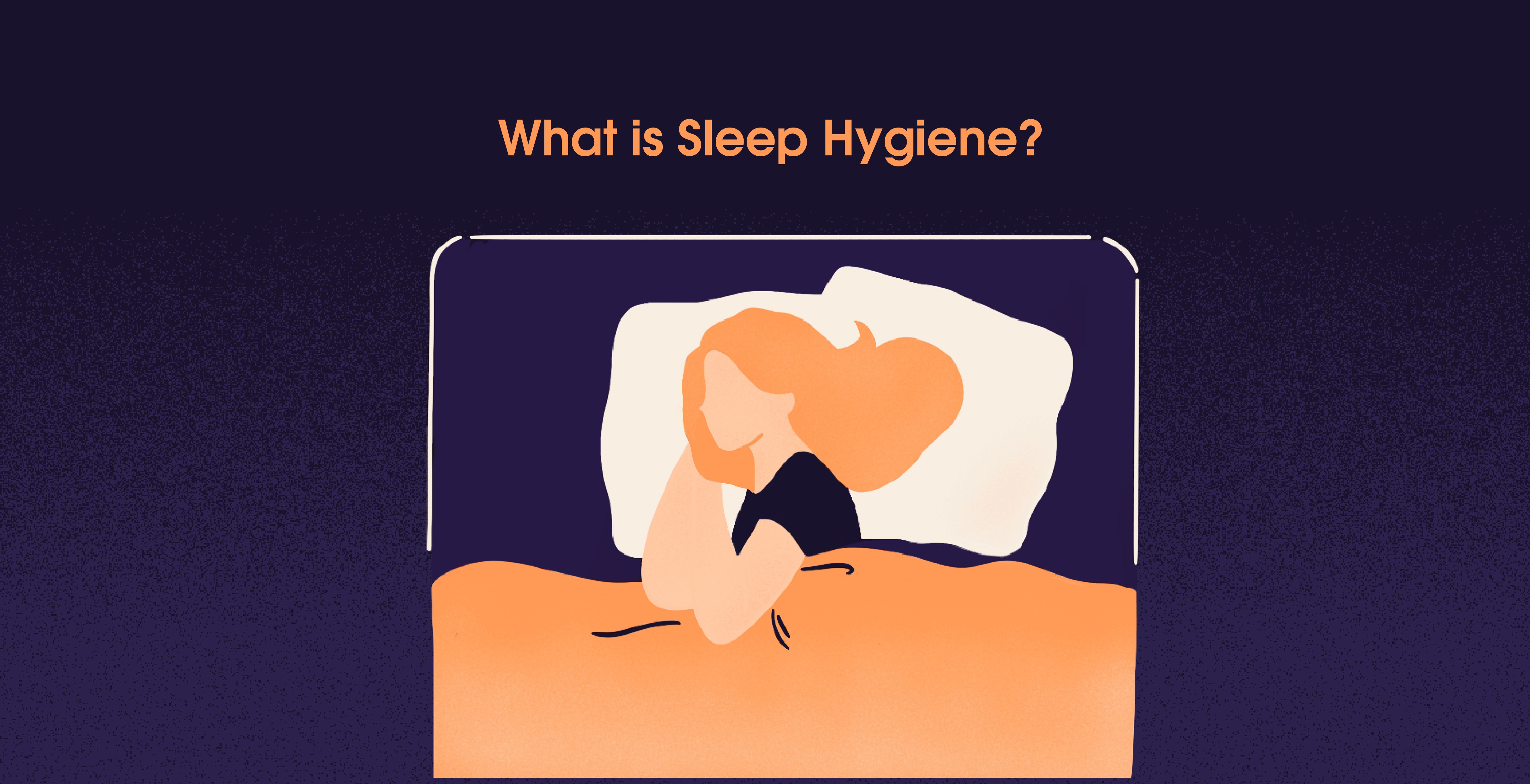Tips and Tricks to Get a Good Night's Rest
Nov 27, 2024
Sayfali Rawlani
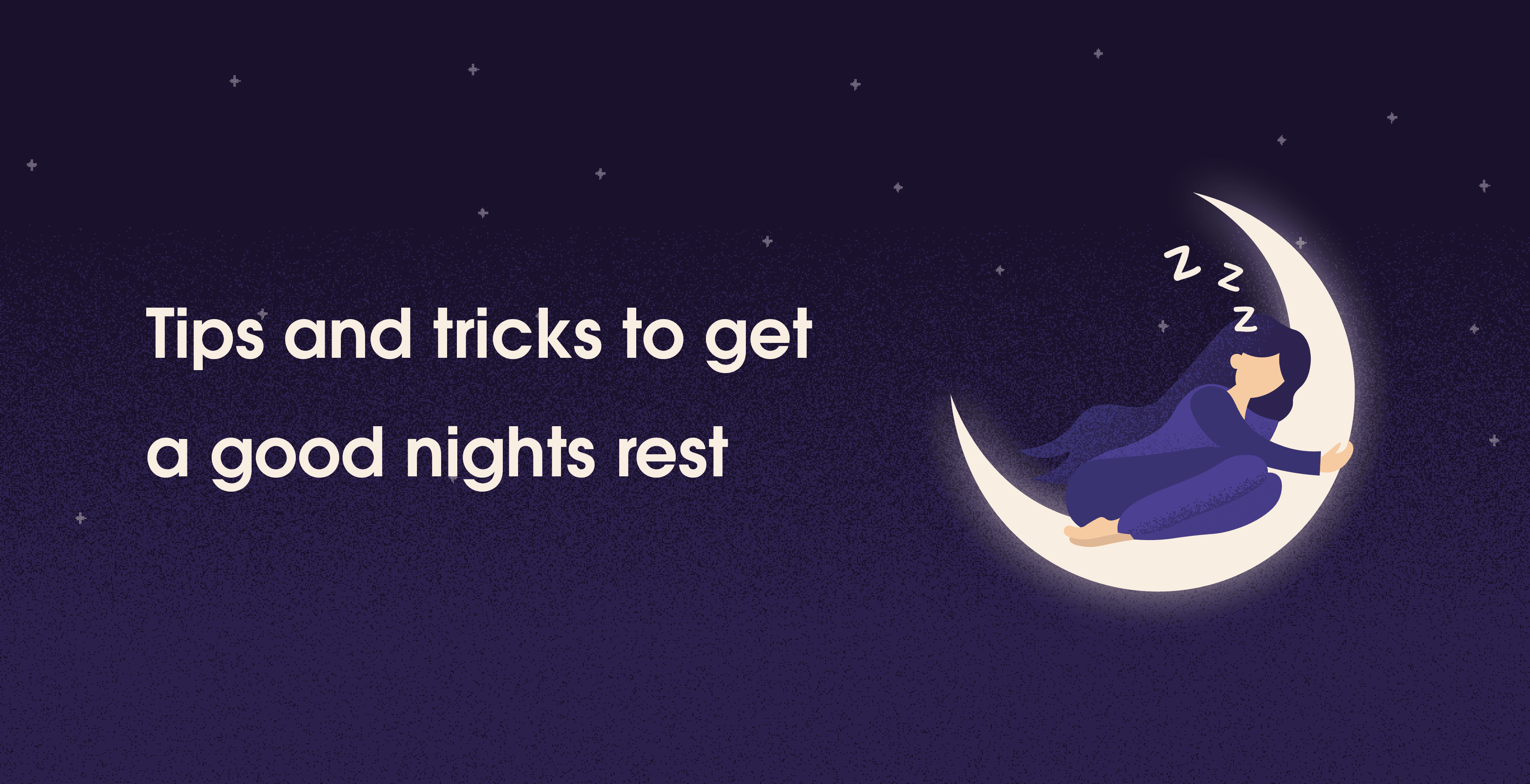


Table Of Contents
Getting a good night’s sleep is not just about feeling refreshed the next day; it’s vital for your health, mood, and productivity. Studies show that adults need 7-9 hours of sleep each night for their bodies and minds to function properly. But with busy schedules, endless scrolling on devices, and everyday stress, restful sleep often feels out of reach. Let’s learn some simple and effective tips to help you sleep better.
Highlights
Maintain consistent bedtimes and wake times, even on weekends.
Ensure a dark, quiet, and cool bedroom. Use blackout curtains and comfortable bedding.
Avoid devices at least an hour before sleep to reduce blue light exposure.
Avoid heavy meals, caffeine, and alcohol in the evening. Opt for herbal tea or warm milk instead.
Engage in physical activity during the day, but avoid intense workouts close to bedtime.
Practice meditation, deep breathing, or journaling to calm your mind before bed.
Limit naps to 20-30 minutes and avoid napping late in the day.
Avoid working, eating, or watching TV in bed to reinforce sleep associations.
If you can’t fall asleep, get up and do something relaxing until you feel drowsy.
Consistently prioritize your sleep routine to improve overall health and energy.
Effective Tips to Help You Sleep Better.
Stick to a Sleep Schedule
One of the best ways to improve sleep is to go to bed and wake up at the same time every day, even on weekends. According to the National Sleep Foundation, maintaining a consistent sleep routine trains your body’s internal clock to fall asleep and wake up more naturally. So, set your bedtime and stick to it!
Create a Sleep-Friendly Environment
Your bedroom should be a sanctuary for rest. A quiet, dark, and cool room can make a huge difference in how quickly you fall asleep and how well you stay asleep.
Darkness: Use blackout curtains or an eye mask to block light.
Noise: Try earplugs or a white noise machine if the noise keeps you awake.
Temperature: The ideal sleep temperature is between 60-67°F (15-20°C), according to experts.
Also, ensure your mattress and pillows are comfortable and supportive. If they’re old or lumpy, it might be time for an upgrade.
Limit Screen Time Before Bed
Your phone, tablet, or TV emits blue light, which can interfere with your body’s production of melatonin—the hormone that controls sleep. A study by Harvard Medical School found that blue light suppresses melatonin twice as much as other types of light. Try to put your devices away at least an hour before bedtime. Instead, read a book or listen to calming music.
Watch What You Eat and Drink
What you consume in the evening can greatly affect your sleep quality.
Avoid heavy meals: Eating large or spicy meals late at night can cause discomfort and indigestion.
Cut caffeine: Caffeine can stay in your system for up to 8 hours, so avoid coffee, tea, or energy drinks after the afternoon.
Limit alcohol: While alcohol might make you feel sleepy initially, it can disrupt your sleep cycle later in the night.
Instead, sip on something soothing like chamomile tea or warm milk before bed.
Get Moving During the Day
Regular physical activity can help you fall asleep faster and enjoy deeper sleep. However, exercising too close to bedtime might have the opposite effect and leave you feeling energized. Aim to finish workouts at least 3 hours before bed.
Manage Stress and Relax
Stress and anxiety are common culprits behind sleepless nights. Learning how to relax can help calm your mind before bed.
Practice deep breathing or meditation.
Try progressive muscle relaxation—tensing and then relaxing each muscle group.
Keep a journal next to your bed to jot down worries or to-do lists that might otherwise keep you awake.
Skip Naps or Keep Them Short
Napping during the day can throw off your sleep cycle, especially if you nap for too long. If you must nap, limit it to 20-30 minutes and avoid doing it late in the afternoon.
Keep Your Bed for Sleep
Your bed should only be used for sleeping (and one other activity). Working, watching TV, or scrolling through your phone in bed can confuse your brain into thinking your bed isn’t just for rest. Train your brain to associate your bed with sleep, and it will make drifting off much easier.
Don’t Force Sleep
If you’re lying in bed for more than 20 minutes and still can’t fall asleep, get up and do something relaxing. Read a book, write in a journal, or listen to soothing music. Return to bed when you feel sleepy.
Why Sleep Matters
Good sleep is linked to better concentration, improved mood, and even a stronger immune system. Lack of sleep, on the other hand, can lead to issues like weight gain, heart problems, and reduced work performance. According to the Centers for Disease Control and Prevention (CDC), one in three adults doesn’t get enough sleep.
Final Thoughts
Improving your sleep habits doesn’t have to be complicated. Start by making small changes, like going to bed at the same time, creating a calming bedtime routine, and keeping your bedroom a restful space. With time and consistency, these tips can help you enjoy deeper, more refreshing sleep.
Remember, sleep isn’t a luxury—it’s essential for your health and well-being. So tonight, give yourself permission to rest and follow the above tips & tricks that will definitely help you.
References
Getting a good night’s sleep is not just about feeling refreshed the next day; it’s vital for your health, mood, and productivity. Studies show that adults need 7-9 hours of sleep each night for their bodies and minds to function properly. But with busy schedules, endless scrolling on devices, and everyday stress, restful sleep often feels out of reach. Let’s learn some simple and effective tips to help you sleep better.
Highlights
Maintain consistent bedtimes and wake times, even on weekends.
Ensure a dark, quiet, and cool bedroom. Use blackout curtains and comfortable bedding.
Avoid devices at least an hour before sleep to reduce blue light exposure.
Avoid heavy meals, caffeine, and alcohol in the evening. Opt for herbal tea or warm milk instead.
Engage in physical activity during the day, but avoid intense workouts close to bedtime.
Practice meditation, deep breathing, or journaling to calm your mind before bed.
Limit naps to 20-30 minutes and avoid napping late in the day.
Avoid working, eating, or watching TV in bed to reinforce sleep associations.
If you can’t fall asleep, get up and do something relaxing until you feel drowsy.
Consistently prioritize your sleep routine to improve overall health and energy.
Effective Tips to Help You Sleep Better.
Stick to a Sleep Schedule
One of the best ways to improve sleep is to go to bed and wake up at the same time every day, even on weekends. According to the National Sleep Foundation, maintaining a consistent sleep routine trains your body’s internal clock to fall asleep and wake up more naturally. So, set your bedtime and stick to it!
Create a Sleep-Friendly Environment
Your bedroom should be a sanctuary for rest. A quiet, dark, and cool room can make a huge difference in how quickly you fall asleep and how well you stay asleep.
Darkness: Use blackout curtains or an eye mask to block light.
Noise: Try earplugs or a white noise machine if the noise keeps you awake.
Temperature: The ideal sleep temperature is between 60-67°F (15-20°C), according to experts.
Also, ensure your mattress and pillows are comfortable and supportive. If they’re old or lumpy, it might be time for an upgrade.
Limit Screen Time Before Bed
Your phone, tablet, or TV emits blue light, which can interfere with your body’s production of melatonin—the hormone that controls sleep. A study by Harvard Medical School found that blue light suppresses melatonin twice as much as other types of light. Try to put your devices away at least an hour before bedtime. Instead, read a book or listen to calming music.
Watch What You Eat and Drink
What you consume in the evening can greatly affect your sleep quality.
Avoid heavy meals: Eating large or spicy meals late at night can cause discomfort and indigestion.
Cut caffeine: Caffeine can stay in your system for up to 8 hours, so avoid coffee, tea, or energy drinks after the afternoon.
Limit alcohol: While alcohol might make you feel sleepy initially, it can disrupt your sleep cycle later in the night.
Instead, sip on something soothing like chamomile tea or warm milk before bed.
Get Moving During the Day
Regular physical activity can help you fall asleep faster and enjoy deeper sleep. However, exercising too close to bedtime might have the opposite effect and leave you feeling energized. Aim to finish workouts at least 3 hours before bed.
Manage Stress and Relax
Stress and anxiety are common culprits behind sleepless nights. Learning how to relax can help calm your mind before bed.
Practice deep breathing or meditation.
Try progressive muscle relaxation—tensing and then relaxing each muscle group.
Keep a journal next to your bed to jot down worries or to-do lists that might otherwise keep you awake.
Skip Naps or Keep Them Short
Napping during the day can throw off your sleep cycle, especially if you nap for too long. If you must nap, limit it to 20-30 minutes and avoid doing it late in the afternoon.
Keep Your Bed for Sleep
Your bed should only be used for sleeping (and one other activity). Working, watching TV, or scrolling through your phone in bed can confuse your brain into thinking your bed isn’t just for rest. Train your brain to associate your bed with sleep, and it will make drifting off much easier.
Don’t Force Sleep
If you’re lying in bed for more than 20 minutes and still can’t fall asleep, get up and do something relaxing. Read a book, write in a journal, or listen to soothing music. Return to bed when you feel sleepy.
Why Sleep Matters
Good sleep is linked to better concentration, improved mood, and even a stronger immune system. Lack of sleep, on the other hand, can lead to issues like weight gain, heart problems, and reduced work performance. According to the Centers for Disease Control and Prevention (CDC), one in three adults doesn’t get enough sleep.
Final Thoughts
Improving your sleep habits doesn’t have to be complicated. Start by making small changes, like going to bed at the same time, creating a calming bedtime routine, and keeping your bedroom a restful space. With time and consistency, these tips can help you enjoy deeper, more refreshing sleep.
Remember, sleep isn’t a luxury—it’s essential for your health and well-being. So tonight, give yourself permission to rest and follow the above tips & tricks that will definitely help you.
References
Table Of Contents
Table Of Contents
Table Of Contents
Read More
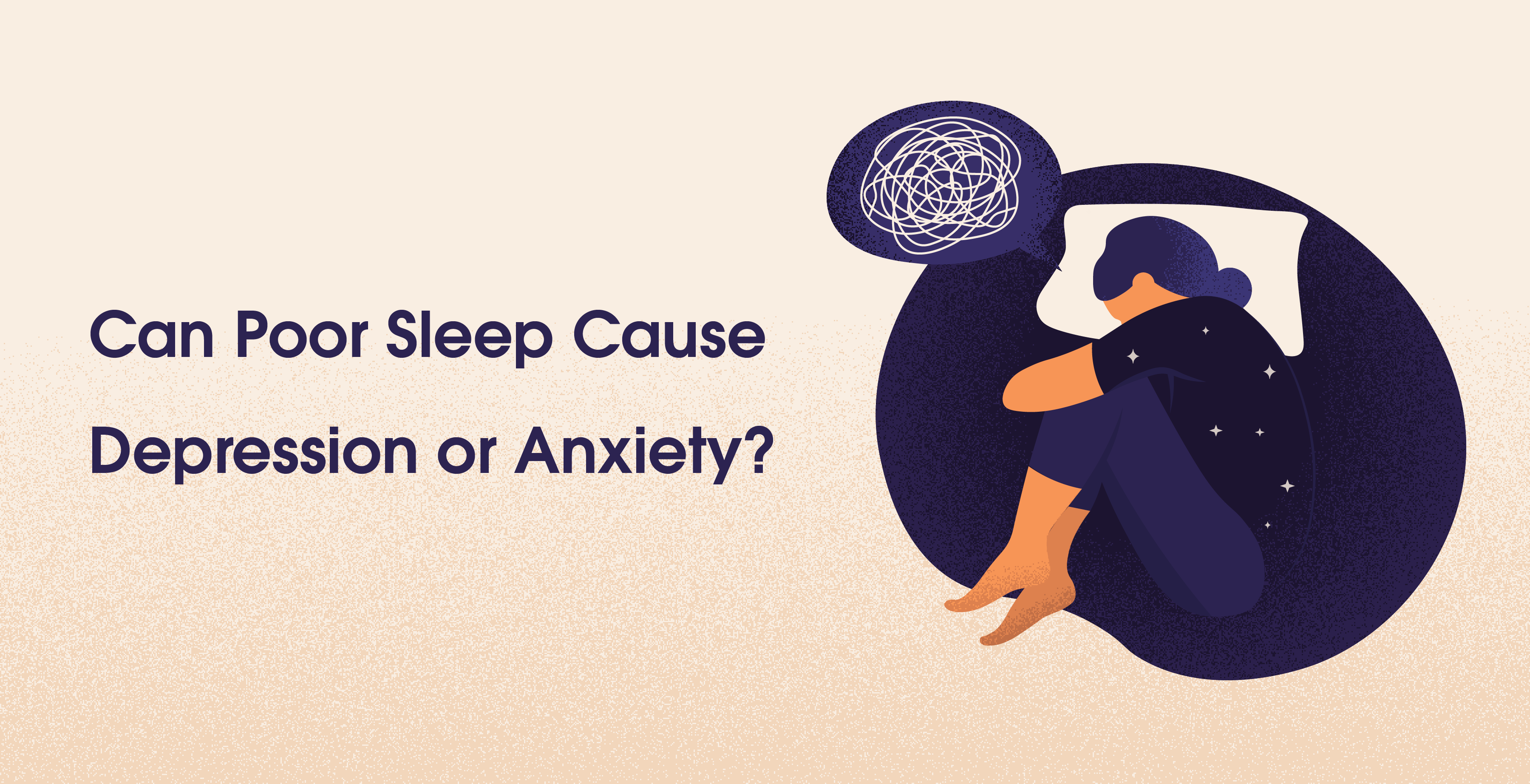

Jan 22, 2025
Sayfali Rawlani
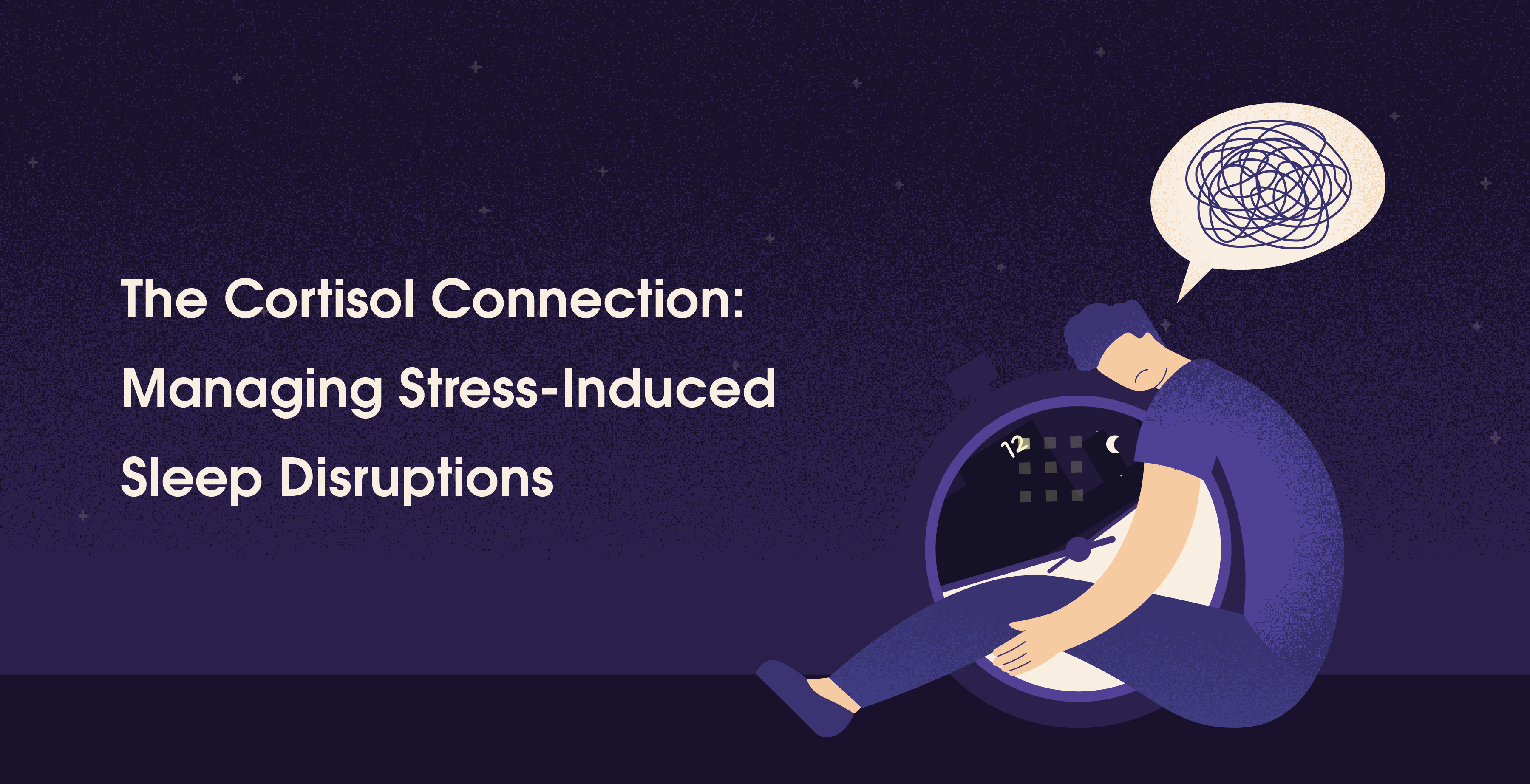

Jan 6, 2025
Aparna Hurtis
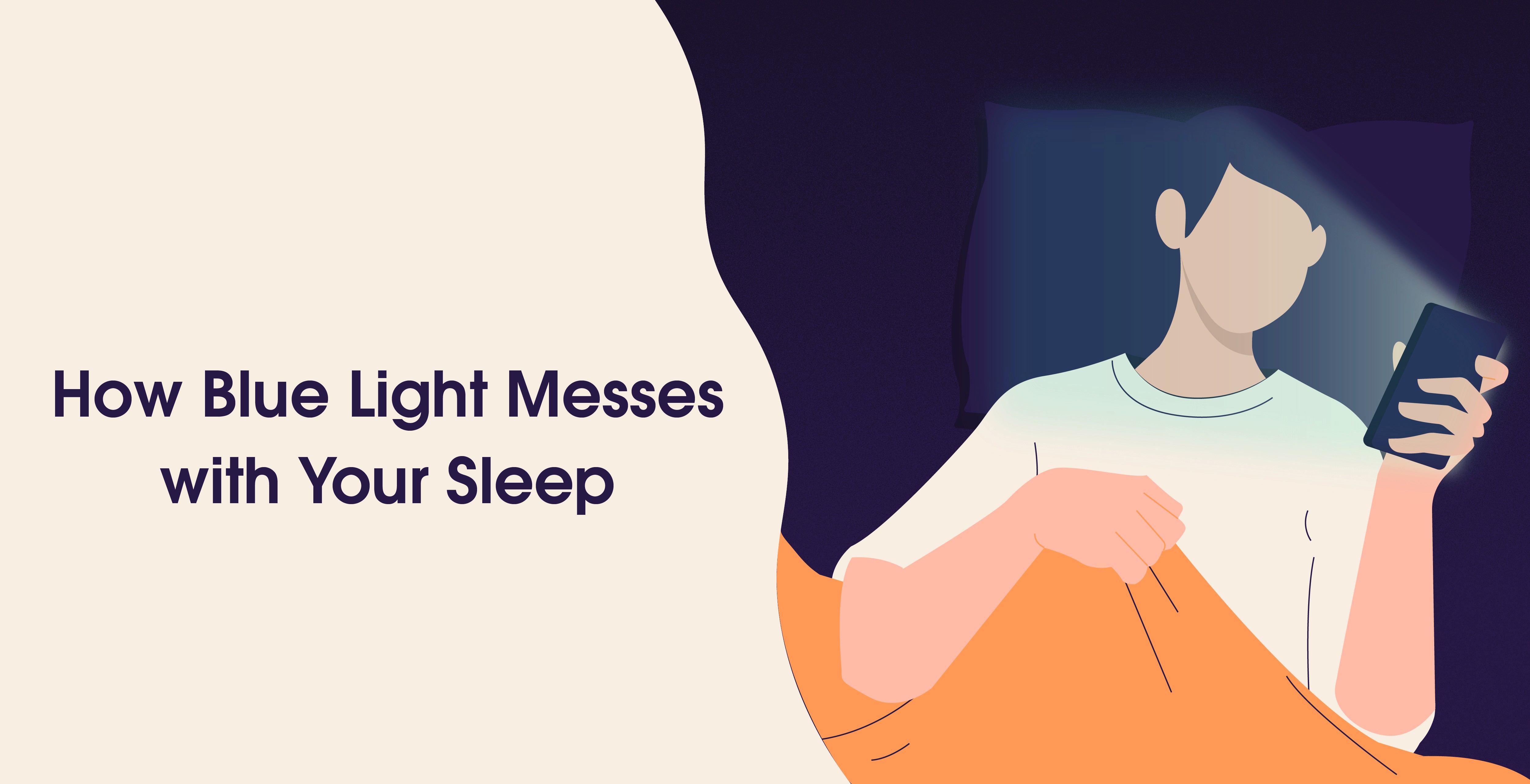

Nov 4, 2024
Sayfali Rawlani



Company
Copyright © 2025 trst health. All right reserved.

